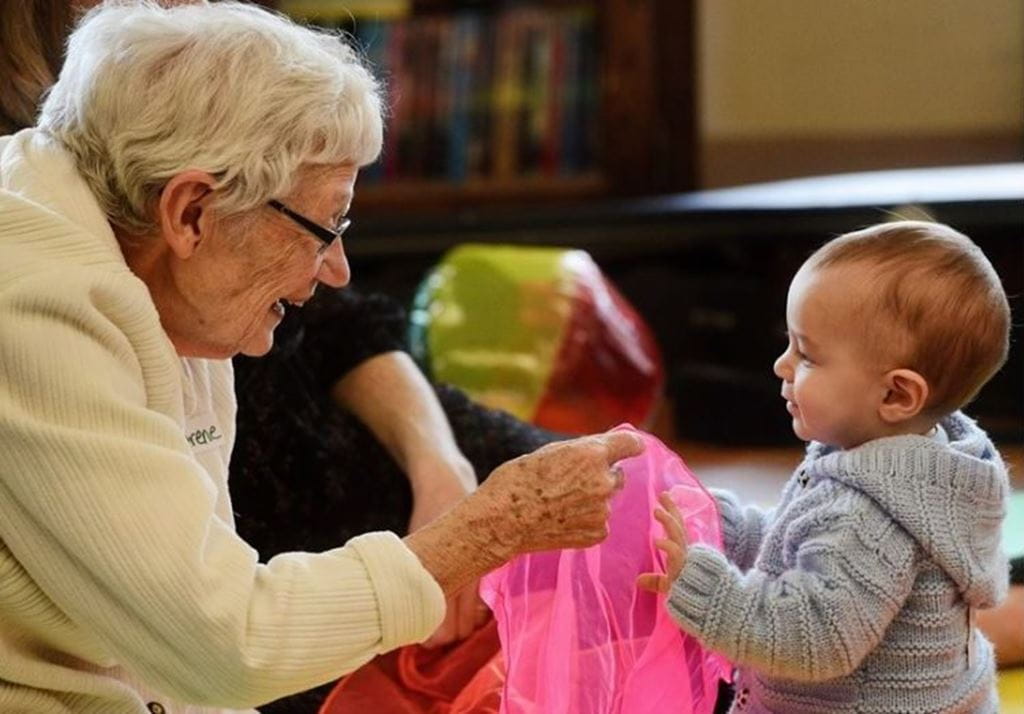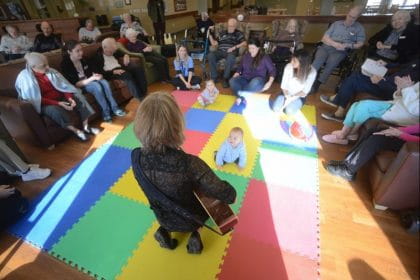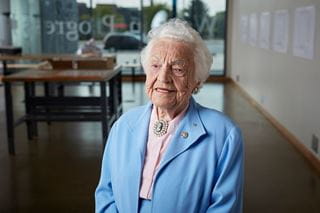
Enhancing familiarity and social connection for older adults in long-term care homes
 by Carolina Salcedo – May 25, 2020
by Carolina Salcedo – May 25, 2020 Sheridan’s Centre for Elder Research has long-standing research collaborations with long-term care homes, conducting numerous projects that aim to enhance the quality of life for older adults living in community and care settings.
For researcher Dr. Kate Dupuis, life in long-term care homes after the pandemic will require a renewed effort to help residents stay engaged and connected, while finding opportunities to ease the toll on mental health for residents and employees.

Dr. Dupuis was appointed Schlegel Innovation Leader in Arts and Aging with the Centre for Elder Research in 2017, and is also affiliated with the Schlegel-UWaterloo Research Institute for Aging. Dr. Dupuis teaches in Sheridan’s Social Service Worker-Gerontology program, and is a registered clinical neuropsychologist. She has a keen research interest in the intersection of arts, health, and aging. In 2018, she began a research study on the benefits of intergenerational music therapy in long-term care homes, working closely with long-standing Sheridan partner, Schlegel Villages.
This work, undertaken at a long-term care home in Guelph, Ontario, explores whether music therapy can have enhanced benefits for participants when young children from the community are invited to join the music-making experiences. The effects on the residents and staff caregivers are plain to see, as there’s a notable sense of anticipation and excitement on the day of the ‘Jamboree’ sessions, and residents delight in interacting with the children. The goal of Dr. Dupuis’ research project is to determine if there is a quantifiable difference in communication, interaction, and engagement among older adults who participate in the program with young children, as opposed to those who take part in the program without children.
A literature review suggested that research into intergenerational music therapy is brimming with potential. “We’re in a unique position to showcase the benefit of this incredible type of intervention,” says Dr. Dupuis. “We want to pinpoint the magical ingredients that need to come together to make a difference for the participants.”

Together with three research assistants from the University of Waterloo, Dr. Dupuis has coordinated two phases of research, beginning by observing 12 intergenerational music therapy sessions, and evaluating the participants for one month prior and one month following the 12 sessions. Her team is also creating a manual to help other long-term care and retirement homes build successful intergenerational music therapy programs.
“The Jamboree is an exciting opportunity for researchers to work directly with care team members to examine the benefits of intergenerational music therapy in long-term care,” says Josie d’Avernas, Executive Director of the Schlegel-UWaterloo Research Institute for Aging. “Once pandemic-related restrictions to visiting are lifted, we will start the Jamboree again and help brighten the lives of residents and staff alike.”
“We want to pinpoint the magical ingredients that need to come together to make a difference for the participants.” – Dr. Kate Dupuis
The second phase of her research – which will resume when it is safe to do so – will delve more closely into this analysis and explore the potential secondary benefits of these music therapy programs on staff and caregivers. Dr. Dupuis stresses that supporting the mental health of the tireless employees at long-term care and retirement homes will be crucial in the wake of the pandemic.
“This pandemic is really showing us how difficult the work of staff in long-term care homes can be, and the sacrifices these employees are making to protect the health and well-being of older adults in their care,” she says. “Anything we can do to support them and add a smile to their face should be encouraged. We hope that our data will reinforce the benefits and the need for these types of activities for everyone who calls these communities home.”
Pictured at top of page: An older adult and toddler interacting at an intergenerational music session. Photo by Tony Saxon, Guelph Today.
Written by: Carolina Salcedo, Internal Communications Officer at Sheridan.
Media Contact
Meagan Kashty
Manager, Communications and Public Relations





